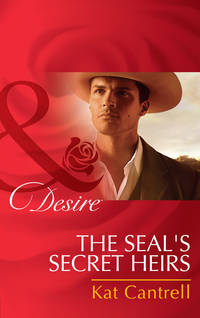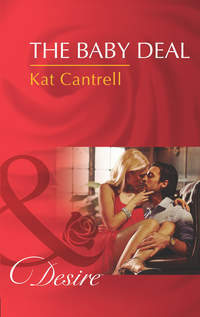
Полная версия
From Venice With Love: Secrets of Castillo del Arco
And Raoul was like a beautiful, tortured dark angel in its midst.
‘I must leave you now,’ he said when they had finished the tour and he once again stood stiffly before her in the library. ‘I have something I must see to. Please make yourself at home.’ And then all too suddenly he was gone, leaving the air swirling in his wake.
She wandered through the apartment alone, stopping to admire a painting or an exquisite detail on one of the many frescoes, admiring the chef’s kitchen with a zillion gleaming utensils hanging from the hooks.
She stopped by the quadrifora, the four beautiful doors that led to the balcony, and on impulse opened them and stepped outside. A breeze tugged at her hair, and on it the scent of cooking from a trattoria she could see along the canal, its tables and chairs spilling out onto a terrace alongside the water. She stood there and listened to a gondolier serenade his passengers and just breathed in the scents and sounds of a city built upon the sea while her tangled thoughts lay elsewhere.
What was it that troubled Raoul? she wondered. That coloured his moods from light to dark in an instant? What was it that drove him to such dark, explosive depths, that turned his eyes unreadable and closed him off to everyone?
She stood there, long after the gondolier’s song had faded along the canal, thinking about the riddle that was Raoul. Finally, finding no answers amongst the stuccoed buildings, the overflowing flowerpots or the slow, eternal slap of water against building, she sighed and thought about unpacking instead so she could go and explore.
She found Natania in her bedroom with the job already half done. ‘Oh, I don’t expect you to do that.’
‘I don’t mind. There is not enough to do otherwise, and anyway—’ she lifted a cashmere sweater and rubbed it against her cheek ‘—you have such beautiful clothes and you wear them so well. Do you know my Marco said you looked like a flower when you arrived? Dewy and fragile and just waiting to be picked.’
Gabriella stilled as she retrieved her toilet bag from the case, heading for the bathroom. ‘Marco said that?’
Natania nodded gravely, slipping tissue paper between the folds of the sweater before reverently placing it in a drawer. ‘Please don’t be offended. It was meant as a compliment. Only he was worried that to put you in this bedroom …’ She waved a hand ‘… well, it might make you unsettled.’
Gabriella was still trying to work out how to answer when the other woman unzipped a compartment in her suitcase, unfolded a dress and laid it on the bed, smoothing the fabric with her hands, almost worshipping the formal gown. ‘So beautiful,’ she said, slipping a cover over the dress before hanging it in the closet. ‘Maybe we could go shopping together while you are here?’
‘I’d love to.’
The other woman’s eyes lit up. ‘You would? Bene. Anyway, I told Marco he was wrong. A woman as beautiful as you, you would know men. You would be no unpicked flower who would become unsettled by a little nudity. Am I right?’
Gabriella looked around the alcove and wondered at the other woman’s definition of ‘a little nudity’, but she wasn’t about to debate that now. For, while it was nobody’s business but her own, she got the impression this was no time to act coy. She was no shy, retiring flower after all, even if she lacked the raw sensuality of this gypsy princess. ‘I’m no virgin, if that’s what you mean.’ Even if she could count the number of times she’d had sex on the fingers of one hand.
The other woman’s eyes opened wide, her lush mouth in a broad self-congratulatory smile as she planted her hands on her hips and nodded. ‘You see? I knew that. A woman senses these things.’ She gestured to the walls around them. ‘Then you will understand this art. You will appreciate it for its true beauty.’ She glanced at her watch and then back at the suitcase. ‘And now I must start dinner, but …’
‘It’s okay,’ Gabriella said. ‘There’s not much to do. I’ll finish the unpacking.’
‘Grazie! And I promise you tonight I will make a feast fit for a king—and his queen, for that matter.’ She gave an abrupt nod, as if she’d just made up her mind about something. ‘Yes, it is good to see Raoul with a woman at last.’
‘Natania, please don’t think … It’s not like that. We’re old friends, that’s all.’
‘Si. Maybe for now.’ And with a toss of her beautiful head she spun on her heel and headed for the kitchen, the bangles on her hand jangling in time to the sway of her hips.
What was that supposed to mean? Was Natania a fortune teller as well as a cook? But, with her spine still tingling from the gypsy’s unsettling prediction, there was no way Gabriella was going to ask.
Not when she half-wished it could be true.
Raoul stormed across the square behind the palazzo, sending pigeons scattering while he cursed the black tide inside him that threatened to rise up, bitter and turgid, from his gut like the thick, black sludge that stuck to the piles below the water. A black tide that would not let him out of its clutches, that clogged his veins and would not let him think or act like a normal man.
He had never wanted this. He was in no position to keep anyone safe, not when he lurched from one dark mood to the next—not when he had been unable to save his own wife.
But he hated the way Gabriella had flinched back there in the library, as if he had physically lashed out and struck her—all because he was incapable of dealing with someone who saw light when he saw dark, who saw hope where there was none.
And afterwards she had withdrawn into herself, quelling her natural spirit until she had become a stilted and stunted facsimile of who she really was, and he hated himself for doing that to her even more.
If he could not repress that side of himself, he would surely frighten her away and she would never agree to marry him.
And he had promised to.
Damn himself to hell and back for it, but he had promised. What happened when you broke a promise to the dead? Did they rise up and come after you? Did they toss and turn in their graves and haunt your dreams and turn your days to nights?
He didn’t want to find out. He already had enough ghosts to last a lifetime.
So he would have to woo her, court her and let her zest for life wash over him. And then afterwards, when Garbas was safely locked away behind bars and could not touch her, he would let her go.
CHAPTER FIVE
MAYBE it was Natania’s cooking and the superb platter of frittura, the fried fish and calamari she had prepared, or maybe it was the rich risotto al nero di seppa made with squid ink, which Gabriella found surprisingly delicate, that served to soothe Raoul’s dark mood. Or maybe it was just that his appointment had gone well. But, whatever the reason, Raoul was back to his charming best when he returned to the apartment. When he suggested an evening walking-tour of Venice after dinner, she could not resist the chance to explore the city. The air was heavier tonight, full of humidity as a cooler change worked through, but for now it was still warm. Raoul reacquainted her with the big tourist sites, with the highly ornate Basilica di San Marco and the grand Palazzo Ducale in St Mark’s Square where once long ago she’d fed and raced after pigeons with her friends. He pointed out the domed bell-tower of San Giorgio Maggiore standing on its own island across the dark slapping waters. He took her to the Rialto Bridge, the stone wonder spanning the broad Grand Canal, its central portico lit up so it looked like a grand lady dressed up for a night out. Then he showed her places that were off the main trails, wending his way through the darkening city, showing her architectural treasures and little-known pictures carved into stone walls and known only to those who knew Venice beyond the tourist routes.
He could do this, he decided as he led her to a tiny trattoria overlooking the lagoon for coffee. He could force back that black tide inside him and be civil—pleasant, even. He could be interested and attentive. And he could do this not just because he had to but because he honestly wanted to know more about her, more about those lost years when he had missed out on knowing her.
‘What made you decide to become a librarian?’ he asked, watching the ends of her hair play on the soft breeze as she sat down. She’d tied her hair back in a loose knot behind her head before they’d come out, but tendrils had worked their way loose and now danced around her face. He envied them their playfulness. His fingertips itched to brush them away, to linger on her soft skin …
Their coffee arrived; she thanked the waiter and looked back at him, her eyes bright and clear, smoothing the hair from her brow and tucking it behind her ears. ‘I don’t think there was ever a time I didn’t want to do something to do with books. I actually think my profession chose me.’
He realised he liked listening to her too. He liked the sound of her accent, the blend of half-French, half-English, the best of both, Cognac over cream.
‘Tell me what you love about it,’ he urged.
‘It’s just working with books, all of them, every one of them an entire world between the covers. Every new one is a discovery and until you dip into them you just never know what’s inside: new worlds; new discoveries; new characters who leap off the page. It’s all there, just waiting for you to open the cover and turn the page.’
She was so bright, so passionate, and even while he felt the darkness rise, even as his gut churned and rebelled, still it was impossible not to feel that light shine out from her and warm him in places where light had not touched for so long.
‘The books in my library,’ he bit out, coming up with an idea that might hold her, something to keep her interest while she stayed. ‘I don’t even know what’s there.’
He watched her brow pucker as she sensed the almost-crime. ‘Maybe while I’m here—if you didn’t mind, that is—maybe I could look at them and catalogue them for you.’
‘You would do that for me?’
‘I would love to.’
She was so excited, he believed she would.
‘What about you?’ she asked as he finished his coffee, so suddenly that he was taken by surprise.
‘What about me?’
‘What have you been doing all these years?’
Standing still.
Trying to forget.
‘Nothing half as interesting as you.’
She tilted her head. ‘I was sorry to hear that your wife died. You were married such a short time.’
The black tide grew closer. ‘What did you hear?’
‘Only that there was some kind of tragic accident. But it’s such a long time ago now. Did you never think of remarrying?’
Never.
He pushed his chair back. ‘Why don’t we walk?’
A mist had grown while they’d sat in the café, rolling in over the sea, devouring everything in its path. Gabriella forgot about her question and thought there was something so utterly fascinating and serene about watching an entire world slowly vanish, a fantasy world disappearing into the fog as if it had never been real, as if it had never existed.
They found a bridge looking out over the water where the deepening mist rolled in over the lagoon, obliterating and absorbing everything, even sounds, so that it was as though Venice had been buried under a dank, white cloud. Every now and then a light would appear, or the dull rumble of an engine would herald the ghostly shape of a vessel making its way back to shore. She shivered. ‘Are you cold?’ he asked, putting his arm around her shoulders.
‘It’s spooky,’ she said, looking up at him. ‘Don’t you feel it?’
He looked out into the mist-covered lagoon and she wondered what he was looking for when all anyone could see was white. ‘The ghosts come out,’ he said, ‘When there is a night like this.’
‘Oh, Raoul, please,’ she said, trying to laugh while she fought down the prickles rising at the back of her neck and the shivers running down her spine. ‘I’m not a child you can frighten so easily.’
‘No, it is true. There are many, many ghosts in Venice. And many, many stories.’
And, because she had told him she was no longer a child and could not be frightened so easily, she felt she had no choice but to boldly ask, ‘Like what? Tell me one of your ghost stories, then.’
Still looking out in the mist, a look so intense it was almost enough to make her regret her rash challenge, he began, his voice low and heavy with foreboding. ‘Once there was a wealthy merchant who had the world at his feet. He had riches beyond measure—he was good-looking, some even said—and he had a beautiful wife, famous and talented. And he thought that he had it all. He thought that he was happy.’
She held her breath as the fog swirled silently around them, knowing this could not end well.
‘And then one night, a night filled with the pleasures of the flesh as so much of his life had become, he introduced his wife to two brothers, supposedly two friends of his. But the two brothers conspired against him. They promised the merchant’s wife the world and spirited her away.’
‘She went willingly?’
He shrugged. ‘Who can say? The man was a fool, you see, who saw nothing before him but his perfect life, and nothing afterwards but a blind rage. And when he found her one storm-ridden night, lying with one of the brothers, it almost destroyed him.’
‘What happened?’
‘They died that night, both the woman and her lover.’
‘The merchant killed them?’
‘He might as well have. Because she haunted him every night afterwards until he thought he was going mad with the darkness. And even now, on nights such as these, you can hear her voice on the mournful breeze calling for him, searching for him, waiting for him to pass by so she can suck him into the watery depths.’
Through the gloom of the fog the soft wind moaned and a light flickered faintly once, twice, before it disappeared back into the swirling fog. Gabriella grabbed hold of Raoul’s arm, chilled beyond measure. ‘It’s late,’ she said, trying not to tremble as she clung to him. ‘And it’s been a long day. Let’s go home.’
They walked back hand in hand, the soft lamps along their route and Raoul’s solid presence banishing thoughts of ghosts, legends and what must have been just wild imaginings, turning her thoughts away from the ghostly and much more towards the physical and the real. Her hand fitted well in his, she mused; his long fingers were warm and strong. She squeezed her hand and he squeezed back, looking down at her. ‘I want you to be happy, Bella. Are you glad you came to Venice?’
She smiled, thinking she would be happy to be with Raoul anywhere when he was like this—charming, warm and the perfect host. But to be here with him in Venice, against the backdrop of mediaeval palazzos, with the rumble of the vaporettos and the snatches of love songs from passing gondoliers, she couldn’t think of a better place to be. ‘It’s magical, Raoul. Thank you for insisting I come.’
He stopped and pulled her to him, his free hand curving around her neck and sending delicious shivers coursing through her as leaned down, his eyes on her mouth. She gasped as their lips met, breathing in the taste of him, dark, rich and potent, much like the man himself. His mouth weaved some kind of magic on hers. So tender and evocative was his kiss that she wanted to fall into it and go with it wherever it might lead so that, when he lifted his head, she almost mewled a protest.
‘What was that for?’ she asked, suddenly breathless and dizzy, hoping for all kinds of things that were probably as unlikely as building an entire city on water—yet here it was.
‘Because,’ he said, his dark eyes swirling with heated intent, ‘There was no way earthly way I could not.’
She lay awake a long time that night in the big king-sized bed surrounded by the endless orgy, a celebration of the act of love in all its iterations, still reeling from Raoul’s kiss, still tingling at the memory of his touch and the sensual brush of his lips against her own.
Buzzing at the erotic images on the walls around her.
On the wall before her a nymph kissed her lover, his hand at her plump breast. She could almost imagine that hand on hers, tweaking her nipple, coaxing it to hardness. With a groan she turned over, willing herself to think of something less sensual, less arousing—only to be welcomed by a wild-eyed woman, her head thrown back in ecstasy as her lover pressed close behind her. She turned on her stomach, buried her face in the pillow and tried to ignore the ache in her breasts and the pulsing insistence between her thighs.
Such a big bed.
Such a lonely bed.
Such a waste.
And when she did fall asleep it was to restless dreams of potent, well-built gods, wicked satyrs—and a dark and dangerous man who kissed like one of those gods, who probably made love like one of those gods and who was sleeping a mere room away …
Raoul was out when she rose the next day, so she pulled on jeans and sneakers and a singlet top that could afford to get dusty and threw herself into the task of cataloguing the library while he was away. Marco found her a step ladder so she could reach all but the highest shelves and promised he would help her when she got to those. Even on the lower shelves, the breadth of the collection dazzled her. Mostly they were books printed in Italian, as she had expected, but a quick scan revealed titles on geography, the sciences, history and the arts, with some dusty tomes at least a century old; a veritable treasure trove.
She flipped through one volume, a history of the palazzos of Venice by the looks of it, its spine creaking with age and stiffness. But the illustrations were still wonderful, leaping from the page with life, the buildings along the Grand Canal instantly recognisable even now. Her heart raced with the possibilities of her task—maybe there were volumes here that had never been documented before. Why not?
But with only her schoolgirl Italian to help her she would need help. One of her colleagues from the library would be able to help her, she was sure. She needed to call her boss anyway. She would call later today, when she had more idea of the size of the task ahead.
Then with a pang she remembered she needed to find out what was happening with Consuelo. She had barely spared him a thought ever since she’d arrived, yet there must be news by now. Even if he could not answer her messages, someone must know what was happening to him. Raoul had intimated there was nothing she could do, but there had to be something she could do to help. She was a friend, after all, and he would do the same for her; she was sure of it.
She was just about to descend the ladder when she saw it—the slim volume wedged tightly between two others. Even with her imperfect Italian she could make out the title: Ghostly Tales of Venice.
Thinking it must have been the source of Raoul’s story, she pulled it out, curious, leafing through the pages and searching for his story of the wealthy merchant who was haunted by his lost love. She flipped the pages, just able to decipher a few words here and there. One was a story of children lost in the mist who had disappeared for ever, their gondola found floating listlessly the next day. Another was of a murdered soul who haunted the bridge where he was brutally killed, and yet another told of a woman lost at sea whose unearthly casket could be seen floating on the lagoon on mist-shrouded nights.
Maybe Raoul had been right, she thought as she flipped through the book, her blood running cold with even just a snatched word here and there and a pencil-sketch illustration. Maybe there really were ghosts in Venice’s mist-shrouded waterways. She had felt something last night; she was sure of it.
But she reached the last page of the slim volume and closed the book without finding what she had been looking for. There was no mention of Raoul’s wealthy merchant, nothing that came close to the story he had told her, of the wife lost with her lover who had haunted her merchant husband ever since.
And like the cold slice of steel through flesh an idea came to her and she wondered …
Had it been a legend?
Or had Raoul been telling his very own ghost story?
The lost wife, the tragic death, the darkness he seemed to carry around with him as if the past still had hold of him, weighing him down, refusing to let him go. Was Raoul that haunted merchant?
She clutched the small book to her chest and shivered as she remembered the cool detachment with which he had related the tale, as if it had had nothing to do with him. But Raoul too had lost his wife in tragic circumstances. And he had cut Gabriella off earlier when she had expressed her sympathy, changing the subject. Had the story been his way of explaining something he found too difficult to talk about?
Her heart went out to him. Hadn’t they both suffered enough when they had lost their parents? Yet Raoul had suffered another blow by losing his wife not long after.
She started down the ladder, the book still clutched in her hand. It was so unfair.
It would be enough to drive any man to despair.
She resolved that she would not cause him more pain. As he had come to her rescue with Umberto’s death, rescuing her from her sudden loneliness, so she too would do everything she could to ease his suffering so that he would never rue the day he had invited her here.
She was almost at the last step when the door swung open behind her. One-handed, she turned and lost her footing, and would have fallen, but he was there to steady her, his hand like a steel clamp around her wrist, the other at her waist, easing her gently down to the floor. ‘Bella, what are you doing?’
She looked up at him, breathless and grateful, intending to find him a sympathetic smile, to let him know she understood about his pain and his loss. But just the very sight of him warmed her soul so much—his dark features, the angles, planes and dark recesses that combined to stir her senses—that her smile became so much more besides. ‘Raoul,’ she said as he bent down to kiss her cheeks, leaving her almost breathless as his evocative scent filled her lungs. ‘I thought I would get started on your library. To earn my keep.’
‘I have a better way,’ he suggested. ‘It is a beautiful day outside. Come and share it with me.’
‘But the library?’
‘Has waited this long. It will still be there tomorrow. Come, Bella—you do want to see something of Venice while you are here?’
‘Of course. I’ll just go and get changed.’
‘Please don’t,’ he said, his voice tight. ‘You look good in anything you wear—but in those jeans, Bella …’ And his words put a sizzle all the way to her bones. Then he tilted his head and looked almost genuinely contrite.
‘I probably should not say such things.’
‘It’s okay,’ she said, licking suddenly dry lips—the dust from the books, she assumed. ‘I don’t mind. I … I’ll just grab my jacket.’
He had her. From the moment he had kissed her on that Venice path last night, he had sensed that she was his. Ridiculously easily, as it happened. He could not imagine why any woman, let alone one as beautiful and filled with life as Gabriella, would be drawn to someone as dark and as accursed as him. But for whatever reason—maybe that trait in her that had her believing the best in everyone—she seemed all too ready to forgive him his faults, if he could only repress that dark part of him and act civilised every now and then.
So he donned the air of a civilised man, not one plagued by dark deeds and darker moods. In the ensuing days, he showed her the best of Venice. He walked her to the Castello area in the evening, lingering in the Giardini—the gardens created only two short centuries ago after Napoleon’s invasion—then spent time in the Via Garibaldi, where they sipped bitter spritz with fat green olives amongst the locals taking time out. He took her to the museums and galleries, both the well-known and obscure, and he treated her to the best and least well-known of Venice’s restaurants on the outlying islands, while treating her to the most exclusive of Venice’s boutiques nearby.








